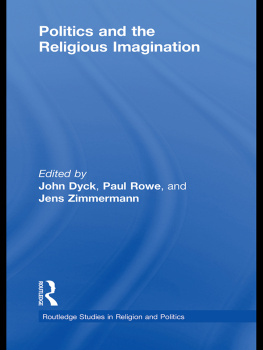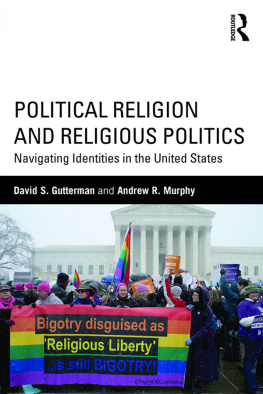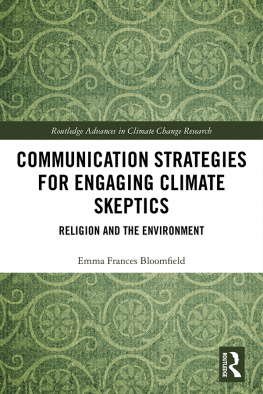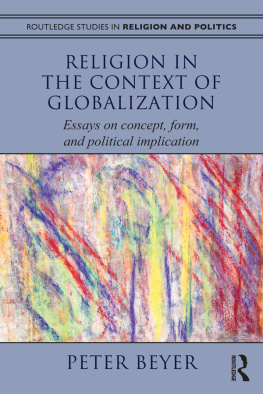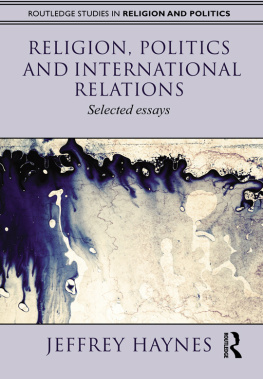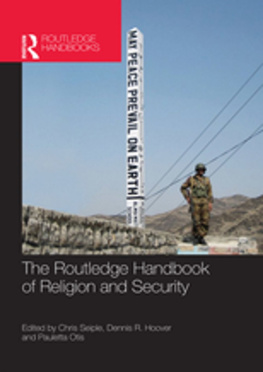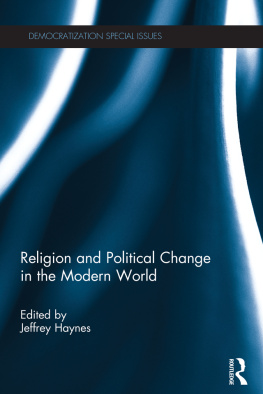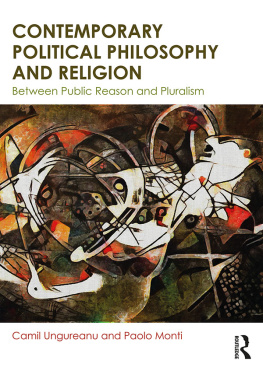The relationship between Christianity and politics in Zambia is quite interesting and complex at three levels. First, Christianity, modern statecraft, and politics are intrinsically interwoven since the very beginning. Second, the history and present relationship between Christianity and politics in Africa are complex, contended, and even confusing. Third, Zambia is one of the countries in Africa where these complexities and contestations are most obvious.
The modern state structures and, thereby, modes of political organizations and politics in general are largely a product of the European cultural sphere. This applies also to the basic values undergirding the Western political system despite the seemingly secular and at times even non
religious outlooks. Even the imagined dichotomy between religion and politics is a part of the dialogue between Christian theologies and modern politics. Paradoxically, these intentions to separate religion and politics are expressions of the inevitable intermingling of Christian theological and Western political thoughts. The roots of this thought can be traced to the New Testament (e.g. Matt 22:21), radical Reformation, and the reassessment of the role of religion in politics after the wars of religion.
In modern times, national state has become the standard political unit fueled with its nationalism. The prime models of the concept of nationhood are found in the Bible and likewise, the word nation is used in early Bible translations.[1] The narrative of the chosen people,[2] consisting of twelve tribes, yet having the horizontal sense of belonging together to the nation of Israel, is paradigmatic.[3] The Hebrew Bible naturally does not contain any modern concept of nationhood, but has served as a source for its formation. The foundational role of the Bible is hardly surprising because the production of literature in national languages was a means of forming the nation.[4] This means that the idea of nationhood already existed but the nation as imagined community was still in the making. The Bible, hymnals, liturgies, and other religious literature dominated the literary scene first. In many cases, after the Bible translation, one could learn to read in ones mother tongue, or a language, or dialect resembling it. Thus, the roots of European national political thought are deep in the Bible. Carl Schmitt goes even so far as to maintain that all significant concepts of the modern theory of the state are secularized theological concepts not only because of their historical development... but also because of their systematic structure.[5]
Colonial powers implemented the modern structures of administration in their coloniesexcept for citizenship to their subjects. Instead of political subjects, they were treated as colonial subjects. Thus, inasmuch as the colonial powers were democracies, they violated the very core values of their political system. The role of the Christian missions in the colonies could be described as complex complicity. The attitude of the missions and missionaries related to colonial oppressive and exploitative policies and practices varied from full cooperation and support to opposition within the given political framework with different variations of milder critical positions in between. While it was common for missionaries to teach that Christians, or at least ordained ministers or priests, should abstain from politics; yet, a considerable section of early independence leaders were running mission schools, and not government schools, like Kaunda, Nyerere, or Senghor. The mission schools were numerous, but the government schools were producing administrational personnel and therefore more apt to produce leaders.
With independence, the scenario changed. While Christianity was the favored religion in many colonies (with Islam in that position in some, especially French colonies), now it is viewed with suspicion by many among the national elites. Likewise, the former colonial masters shifted their position almost overnight in terms of political representation. Democracy for Africans that they had been opposing so vehemently in the colonies, became a major concern when Communist rule turned threatening. Meanwhile, Christianity was expanding rapidly, which also meant the visible return of religion in African politics. Christianity had actually never been away from politics due to the over-representation of Christian politicians and the same resulted in the interweaving of Christianity and statecraft.
The relationship between Christianity and politics in the nation of Zambia was akin to other major Christian African countriesChristianity that is embedded in the public culture alongside religious pluralism and toleration. After Kenneth Kaundas regime toying with scientific socialism, President Chilubas declaration of Zambia as a Christian nation in 1991 was a game changer. This declaration was supported by the Evangelicals and the Pentecostals whereas the Catholic and mainline Protestant churches initially rejected the move and spoke for a pluralist society.[6] Not only the tension between secular or even irreligious politics and Christianity, but also the state of ideological contestations within Christianity between old school apolitical approaches versus liberation theology and traditional pastoral approach versus charismatic healing was seen in the career of Emmanuel Milingo.[7] Additionally, in Zambia, the rise of Pentecostalism in politics has led itself to be contentious among the most visible in Africa.
This book you hold is of immense importance and interest, as all the three levels mentioned above are dealt with in depth. It sheds light on the conundrum of Christianity and politics in present-day Zambia from various spectrums of perspectives, offering detailed analysis from within. Academia has long been occupied with the intermingling of religion and politics; in Islam, it is labeled as Islamism. At the same time, the inherent religious nature of and Christian influence in politics in the West has flown under the radar. Western political structures and cultures have been so hegemonic in political thinking that the normative narrative of secular politics has been the global canon. This has been the case despite the conflicting historical and practical evidences. Several African countries, with Zambia on the fore, make this obvious. Therefore, this book reads not only as a contribution to understanding Zambian or African politics and religion, but also as a contribution to political science in general. Europe, North America, and South America, with their full visibility of religion in politics have a reason to pay attention to Africa with more experience, expertise, and sensitivity on this topic.
- Adrian Hastings, The Construction of Nationhood: Ethnicity, Religion and Nationalism


